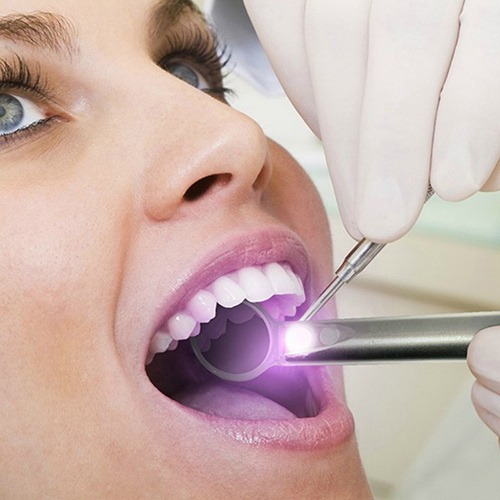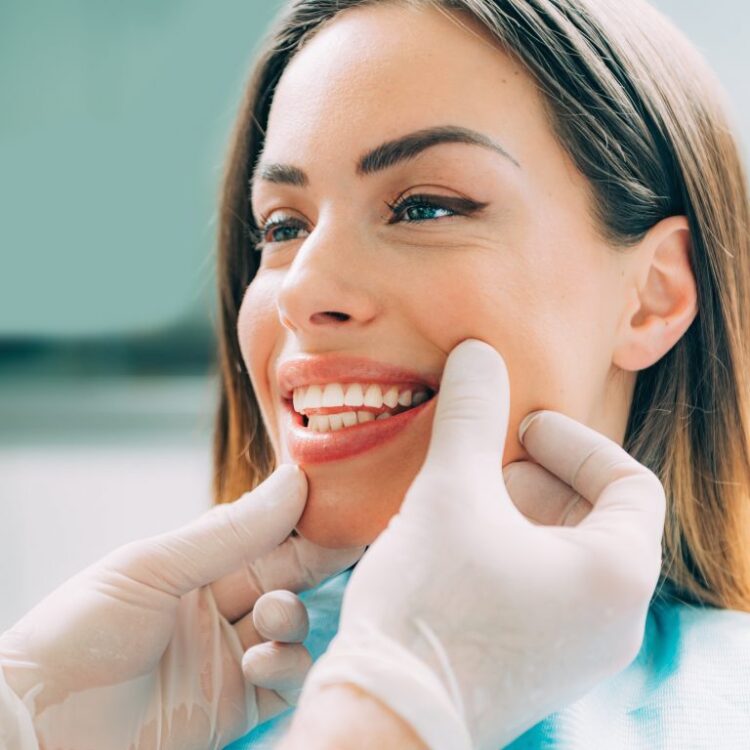
Oral Cancer Screening
Abnormal cell growth can take place anywhere in the mouth
Oral cancer is a disease that occurs when abnormal cell growth takes place anywhere in/on the mouth or throat.
Unfortunately, oral cancer is on the rise – and today, risk factors go beyond being a heavy tobacco user.
Advanced Dentistry
High Quality Equipment
Comfortable Office
Friendly Staff
Oral cancer screening is a crucial aspect of preventive dental care aimed at detecting oral cancer or precancerous conditions at an early stage. Oral cancer refers to cancers that develop in the mouth, including the lips, tongue, cheeks, floor of the mouth, hard and soft palate, and throat. Early detection is key to improving the prognosis and treatment outcomes for oral cancer.
During an oral cancer screening, a dentist or healthcare provider examines the oral cavity for any signs of abnormal tissue or changes that could indicate the presence of cancer or precancerous conditions. Here's what typically happens during an oral cancer screening:
- Visual Examination: The dentist will visually inspect the inside of your mouth, lips, gums, tongue, roof of the mouth, and throat for any unusual or suspicious areas. They will look for abnormalities such as white or red patches, sores, lumps, or changes in the texture of the tissue.
- Physical Examination: The dentist may use gloved hands to feel for lumps or irregularities on the outside of your neck, jaw, and face. This can help identify any swollen lymph nodes or other abnormalities.
- Use of Special Tools: In some cases, dentists may use specialized tools, such as lights and mirrors, to get a better view of the back of the throat and other areas that are harder to see.
- Patient History: Your dentist might ask about any symptoms you've been experiencing, any changes you've noticed in your mouth, and your overall health history.


Risk factors of oral cancer include:
- A habit of using tobacco products (chewing tobacco, smoking)
- Heavy alcohol consumption, especially when combined with tobacco use
- Unprotected oral sex (contracting certain strains of the HPV virus)
- Repeated unprotected exposure to the sun
- Being over the age of 45
It’s best not to worry about getting oral cancer, but to take the preventive measures against it instead.
The good news is, the earlier oral cancer is detected in a patient, the better the prognosis for successful treatment and recovery.
In fact, early diagnosis of oral cancer is critical to save lives.
Be proactive: your smile (and life) depends on it!
When was the last time you’ve been screened for oral cancer, or been in for a routine check-up and cleaning?
If it’s been a while, book an oral cancer screening with our friendly Trenton dentist today.
SCHEDULE YOUR INITIAL CONSULTATION WITH OUR TRENTON DENTIST!



